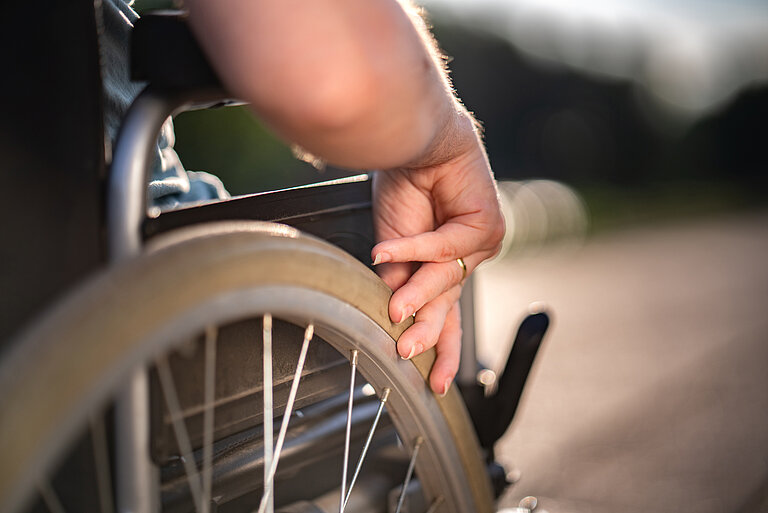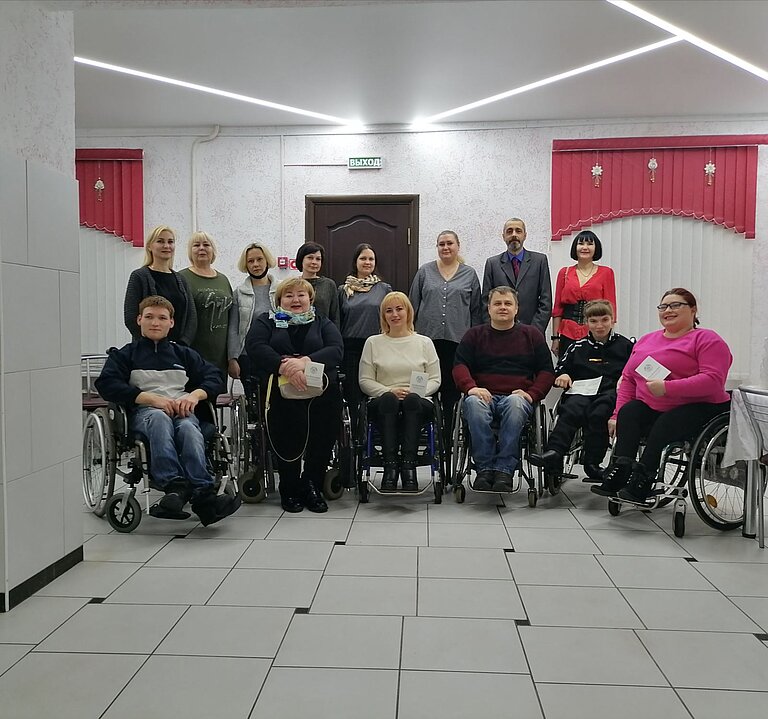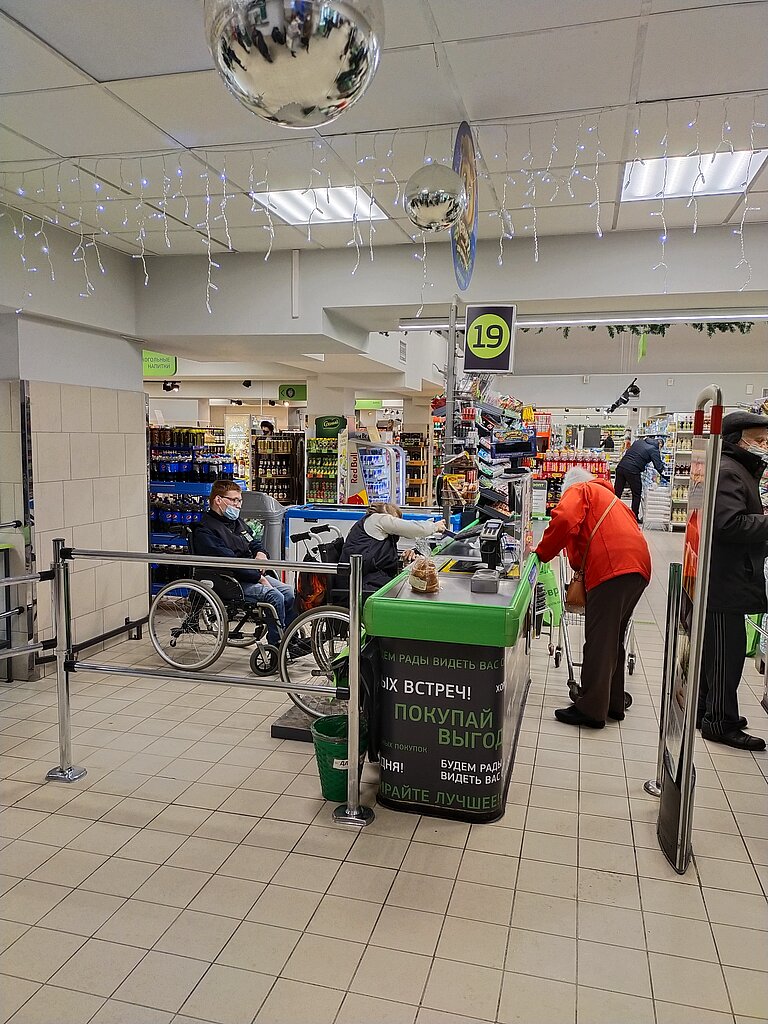Inclusive cashiers in Belarus – Bringing people with disabilities into jobs

There are 570,000 people with disabilities in the Republic of Belarus, which is about 6% of the total population of the country. Of these, almost 200-thousand are of working age. But only one third of them are integrated into the labour market.
At the legislative level, the issue of employment of persons with disabilities is sufficiently elaborated. In addition, the state has provided a mechanism for providing financial support to organisations interested in creating jobs for people with disabilities. However, private and state-owned enterprises have not been very active in creating jobs for this social group. According to some experts, this is partly due to the lack of education and motivation of a large number of people with disabilities. With the project “Inclusive Cashier”, DVV International intended to find a practical solution to that challenge.
People with disabilities need to develop professional competences
DVV International has been working with the Vitebsk branch of the Republican Association of Wheelchair Persons for several years. Until 2021, the main focus of the joint activities had been to expand the range of life skills training programmes for wheelchair users, such as basic computer skills, financial literacy, and household skills. Course participants confirmed that even such simple programmes helped them to become more independent. However, many people needed to develop professional competences in order to increase their independence.
The Inclusive Cashier project that was implemented in 2021 was inspired by the successful experience of another project initiative supported by DVV International in 2017 in Lida (Grodno region) where wheelchair persons were trained in the popular profession of barista. As a result, three specialised coffee shops called Inclusive Baristas were opened and until today are run by people with disabilities.
People with disabilities become cashiers
Based on these experiences, DVV International proposed to partner with a vocational school alongside on-the-job training and to prepare a training course with elements of dual vocational education in the framework of the Inclusive Cashier project.
Thanks to the financial support received from the German Federal Foreign Office, it was possible to complete the refurbishment of the premises provided at the Vitebsk State Industrial College and to pilot a training course for a group of 12 people in a relatively short period of time.
During a five month period, young people with disabilities enrolled in a further training programme to become cashiers. The theoretical training took place at the college. In order to practice the theoretical skills on site, the Belarussian retail chain EUROTORG Ltd. offered internships. The beginning was challenging for the interns; they weren’t used to being exposed to so many people and until that time had rarely shouldered so much responsibility. But most of the participants managed that challenge and saw what positive effects the internship had on their self-confidence.
The training ended with a practical exam in the shop and a theoretical exam at the college. Not all participants were able to follow this difficult path to the end. However, six participants passed both examinations and obtained a certificate in cashiering. After the training ended, EUROTORG Ltd. employed four newly qualified young people with disabilities.

Cooperation continues after project end
Another important result of the project was an agreement reached between EUROTORG Ltd. – one of the largest food retail chains in Belarus with a developed network of outlets across the country – and the Republican Association of Wheelchair Persons to continue cooperation and implement at least one programme each year to recruit disabled people in wheelchairs to train as cashiers, with the subsequent employment of the best graduates.
The project clearly demonstrated the value and great potential of cross-sectoral cooperation. Furthermore, it should be emphasised that without the self-organisation of people with disabilities and without the initiative coming from civil society organisations, it would have been significantly more difficult to implement such a project. DVV International very much hopes that, despite the difficult internal political situation in Belarus, there will always be room for cooperation between state and non-state actors in the realisation of the right to education for all.
Quotes from participants
For me, the project was valuable not only because it taught me a new profession. I saw that people with the same problems as me can live in a completely different way. They can organise their everyday life and solve problems on their own. This is an important experience.
Until I sat at the cash register, I was a little hesitant about whether such a job would suit me. But then I realised: it’s quite easy and fun. It’s interesting to observe people and the kind of shopping they do.
In general, it is important for anyone to feel useful. We may be doing a small thing, but it is part of something big and important...



